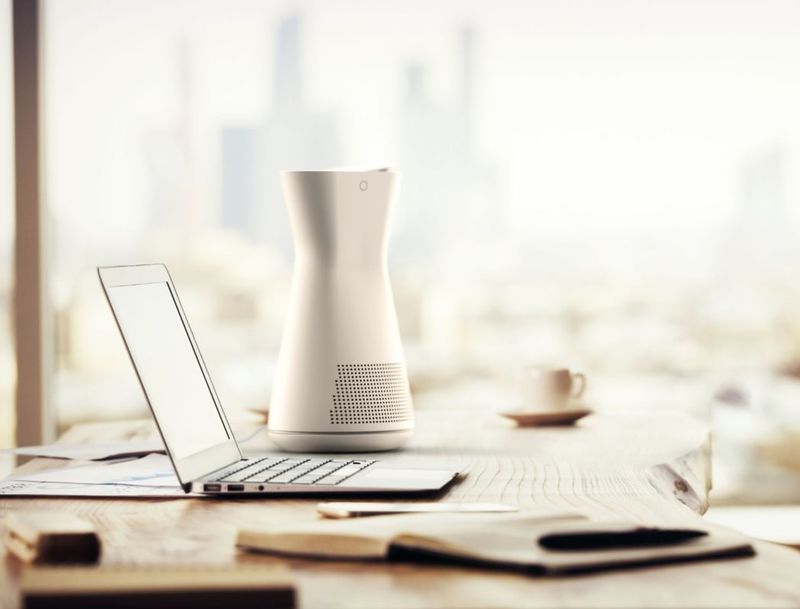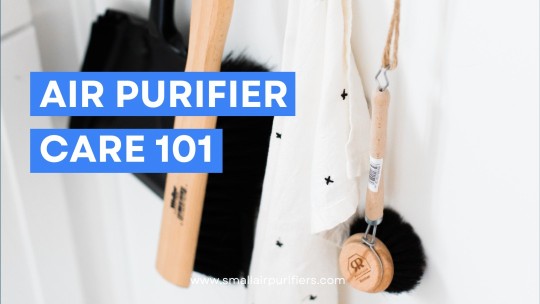
Source: xyz
Small Air Purifiers and the Magic of HEPA Filters
If you are looking for ways to improve the air quality in your home or in your working environment purchasing a small air puirfier can be a good idea. But what exactly is powering these air purifiers. In this blog post, we specifically focus on HEPA filters, one of the most crucial parts of air purifiers.
HEPA stands for High Efficiency Particulate Air and it is a type of mechanical filter. These filters can remove dust, mold spores, and other dangerous particles from the air. It is doing that by capturing airborne particles as small as 0.3 microns.
This article describes the way HEPA filters operate in compact air purifiers, what their advantages are over non-HEPA filters. It will also advice on how to choose the best HEPA filter for your requirements.
What Is a HEPA Filter and How Does It Work?
You may have heard the term ‘HEPA’ before when shopping for an air purifier, but what is it exactly? HEPA stands for High Efficiency Particulate Air Filter and works by trapping 99.97% of particles that pass through it.
A HEPA filter has a series of baffles, similar to a honeycomb or maze-like structure. As air is sucked in by the fan, the larger particles like dust, pet hair and dander are trapped by the outside edges of the filter while smaller particles like germs, allergens and smoke are trapped further inside. This process of trapping particles is called ‘mechanical filtration’.
Aside from its size-selective properties, a HEPA filter also works due to its electrostatic charge which attracts airborne particles based on their opposite charges (+/-). This is called ‘electrostatic precipitation’ and allows for a more thorough cleaning.
The compact size of many HEPA filters make them ideal for small air purifiers as they can fit into tighter spaces while still providing effective air purification benefits.

Check out our collection of small air purifiers.
Benefits of HEPA Filters in Air Purifiers
Imagine the air around you as a flock of birds. Just as some get away, so do millions of invisible particles, such as dust, pollen, pet dander, and mold spores. The only way to truly clean that air and make it better is to catch them—and that's where HEPA filters come in!
HEPA stands for "high-efficiency particulate air," meaning that it's designed to trap particles from the air. They not only keep 99% of airborne pollutants out of your house, but they also serve as a barrier to keep pollutants from being circulated back into the environment.
Using a HEPA Filter in a small air purifier can also help make sure you don’t experience any negative respiratory symptoms due to allergens or poor air quality. Each time your purifier runs, it quickly and effectively captures airborne particles of all sizes—from pollen to dust mites—and prevents them from being inhaled into your lungs. With improved breathing and fewer airborne contaminants, you can enjoy a cleaner atmosphere free of sneezing or coughing fits!
Types of HEPA Filters
Most air purifiers contain High-Efficiency Particulate Air (HEPA) filters. These filters contain densely packed fibers which trap harmful particles in the air.
Depending on the model of air purifier and your needs, there are three different types of HEPA Filter available on the market:
True HEPA Filter
True HEPA filters are designed to capture 99.97% of airborne particles down to 0.3 microns in size. This type of filter effectively captures particulates, helping people who suffer from allergies or asthma.
UltraHEPA Filter
UltraHEPA filters go a step further than True HEPA filers by removing 99.99% of particulates down to 0.003 microns in size—this means they can capture even microscopic dust particles and bacteria as small as 0.1 microns!
Nano Protect ProHEPA Filter
Nano Protect ProHEPA filters are all-in-one filters that combine state-of-the-art technology with advanced materials. These filters capture 99% of airborne particles larger than 0.3 microns and 90% of those 0.003 microns in size. This includes harmful pollutants like smog and VOCs (Volatile Organic Compounds).
HEPA Filter Replacement Frequency
HEPA filters have a long lifespan, but like all air purifiers, they eventually need to be replaced. It's important to stay on top of HEPA filter maintenance as any reduction in performance can reduce the efficiency of the air purifier.
It’s easy to check if the filter designs for your particular device are due for a change. Many filters come with an indicator that lights up when it’s time for a replacement. Plus, many air purifier manufacturers offer subscription services that make it easy to keep track of when you need a new HEPA filter.
We recommend taking note of the date when you install a new filter so you will have a better idea of its lifespan and can set up reminders or plan when you should get a replacement. To make sure your small air purifier is running at peak performance, it is essential to keep up with regular filter replacements.
FAQs on Small Air Purifiers With HEPA Filters
Do you have any questions about the way small air purifiers with HEPA filters work? Let’s go over some of the most frequently asked questions and put your mind at ease.

Featured Air Purifier
Levoit Core Mini Air Purifier
How Long Will a Small Air Purifier With a HEPA Filter Last?
The average lifespan of a small air purifier with a HEPA filter can vary widely. It all depends on how often the air cleaner is used and how well it is maintained. Usually you will be a able to use the air purifiers for many years.
What Is the Difference Between a True HEPA Filter and Standard HEPA-Type Filters?
True HEPA filters are designed to capture 99.97% of particles that measure 0.3 microns or larger. Standard filters, also known as 'HEPA-type' filters, are made to trap 99% of particles that measure between 0.3-10 microns in size – they cannot compare to true HEPA filters in terms of efficiency or effectiveness.
Do Small Air Purifiers With HEPA Filters Remove Odors?
Yes! Many small air purifiers with HEPA filters also come equipped with carbon activated pre-filters which help to remove unpleasant odors from the air.
These pre-filters also help to capture larger airborne particles like pollen, dust mites and pet dander before they make their way into your home.

Healthy Habits: Tips to Keep the Air in Your Home and Office Clean

How to Choose the Right Small Air Purifier: The Most Important Features

Cleaner Air for Better Work: The Benefits of Small Air Purifiers on Your Desk

Boost Your Air Quality: How CADR Measures the Effectiveness of Air Purifiers

Air Purifier Care 101: How to Maintain and Clean Your Small Air Purifier